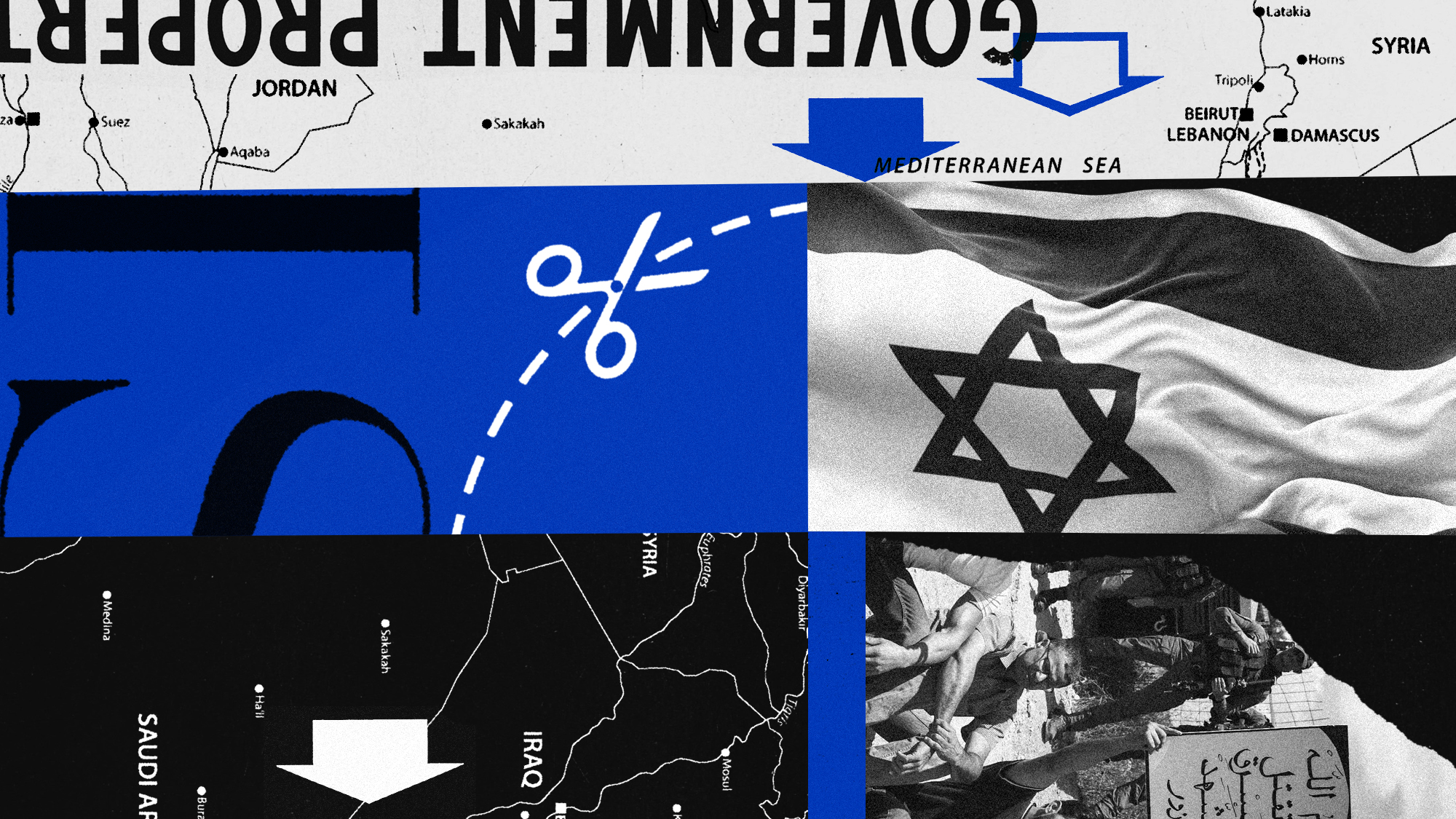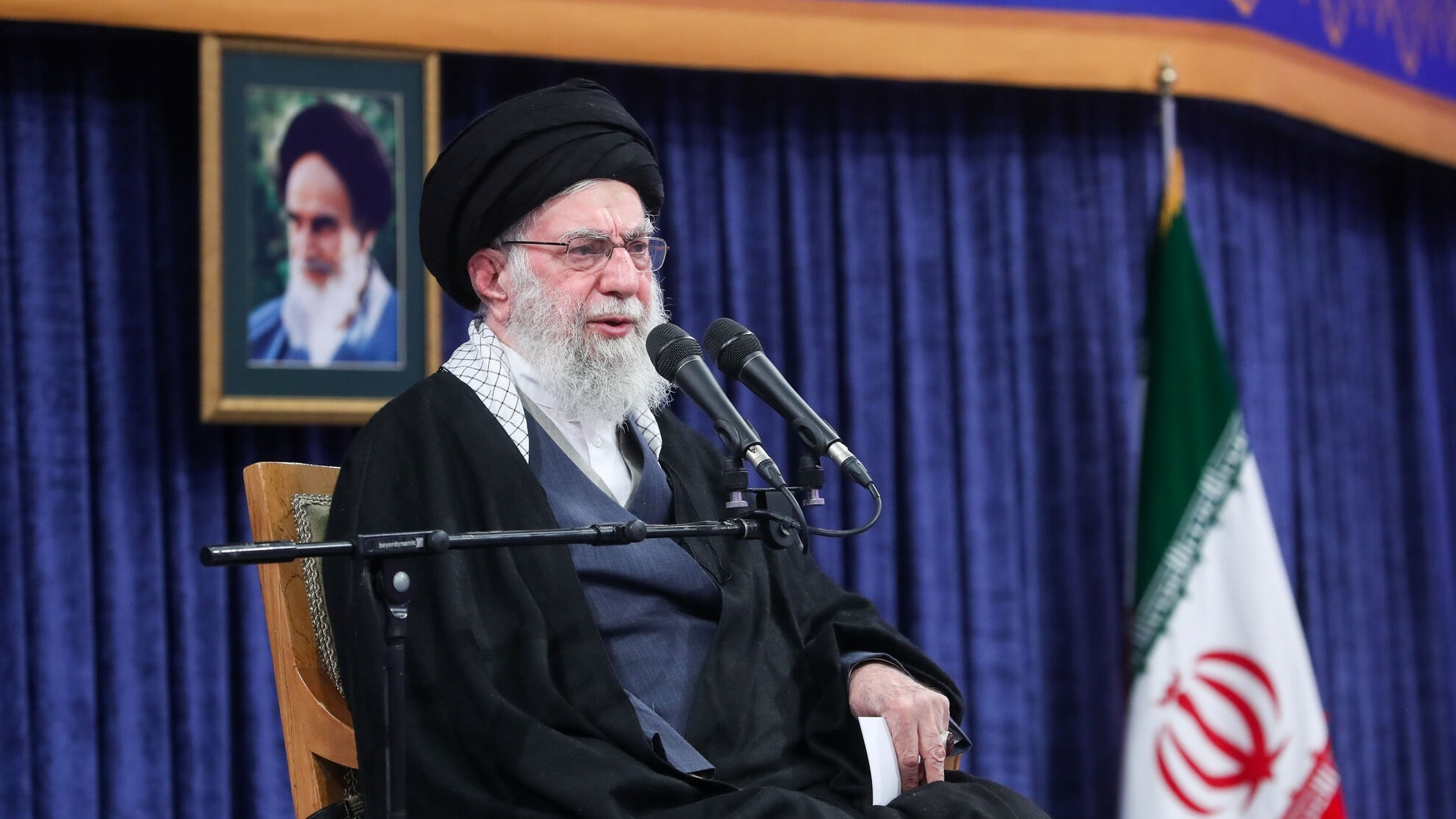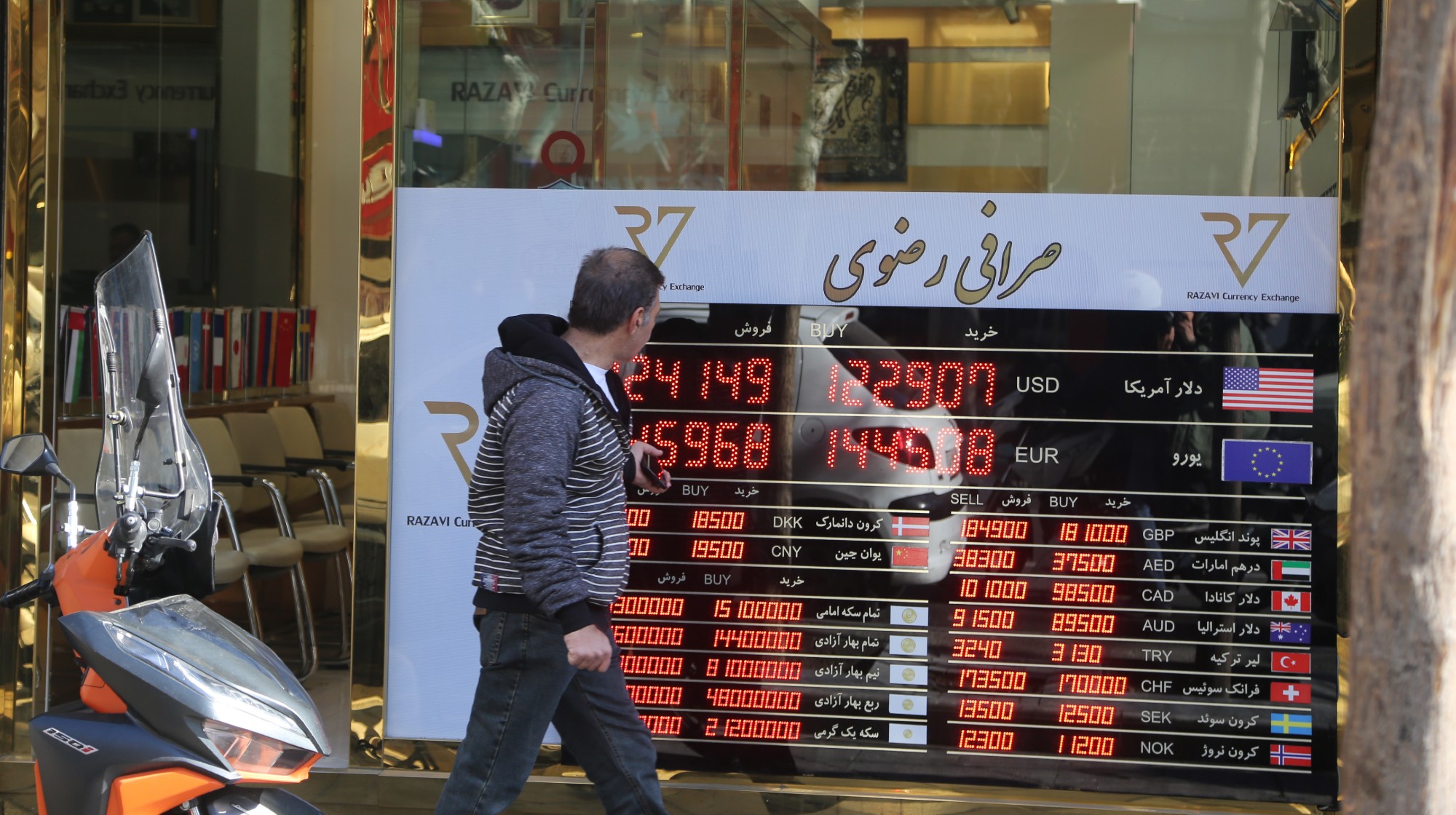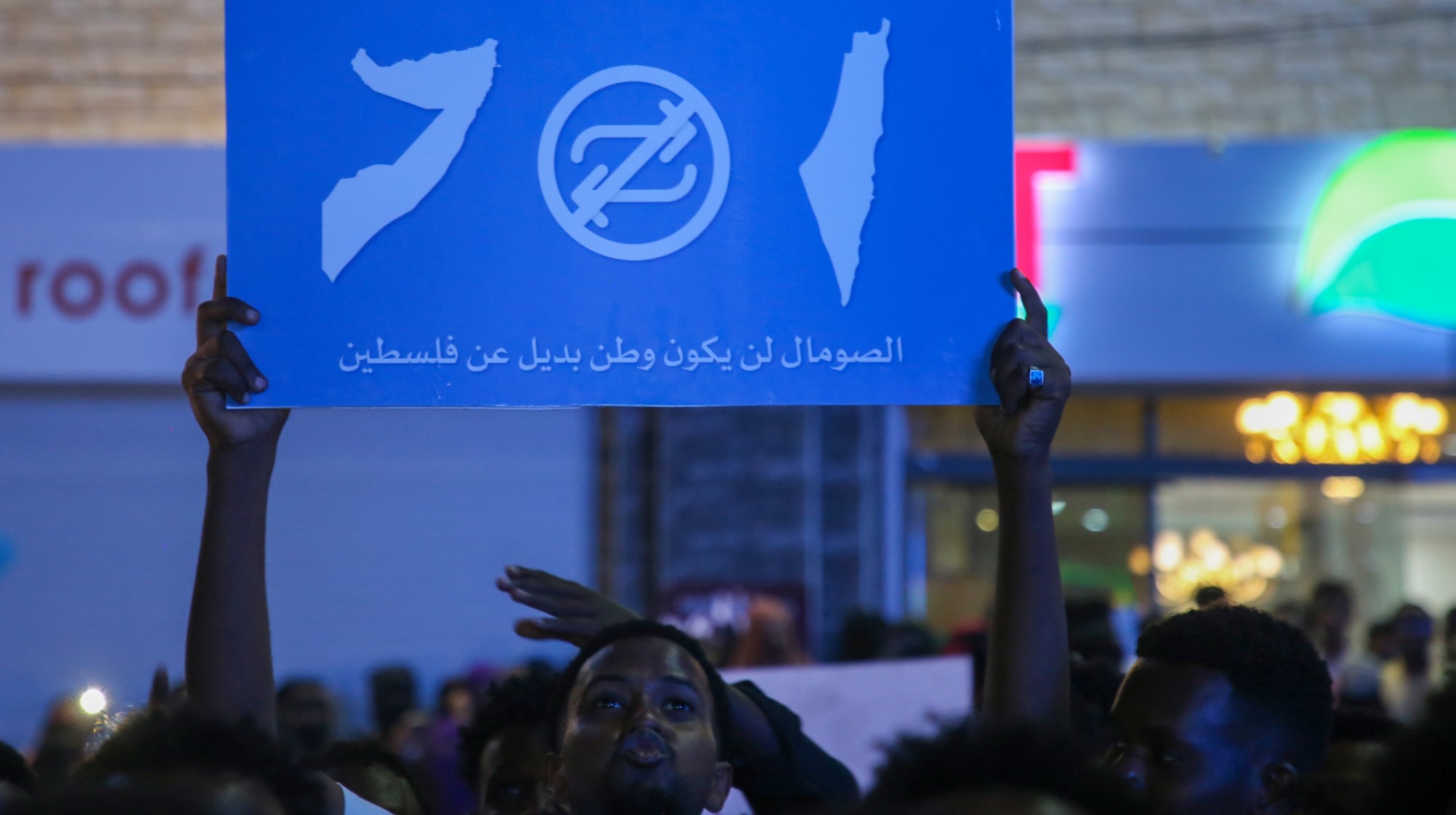What is the 'Greater Israel' movement?
Expansionist ideology favoured by Israel's political right has further strained regional tensions

The Jerusalem Post sparked controversy last month by publishing – and quickly deleting – an article questioning whether Lebanon and parts of other Middle Eastern countries are part of Israel's "promised land".
"Is Lebanon part of Israel's promised territory?" asked Mark Fish in the piece, published on 25 September, which coincided with Israel's assault on Lebanon and subsequent ground invasion. Fish suggested that the land promised to the "children of Israel" in the Torah includes not only modern-day Israel, but the West Bank, Gaza and parts of Lebanon, Syria, Jordan, Iraq and Turkey.
Critics have seen the article's publication and timing as evidence of "expansionist ambitions in the region" among a right-wing movement in Israel, said Middle East Monitor (MEM).
The Week
Escape your echo chamber. Get the facts behind the news, plus analysis from multiple perspectives.

Sign up for The Week's Free Newsletters
From our morning news briefing to a weekly Good News Newsletter, get the best of The Week delivered directly to your inbox.
From our morning news briefing to a weekly Good News Newsletter, get the best of The Week delivered directly to your inbox.
What is 'Greater Israel'?
"Greater Israel" typically refers to "the notion of expanding Israel's territory and sovereignty" to what proponents of the ideology see as its "historic Biblical land", said MEM.
The term has "come to mean very different things to different groups", said Adrian Stein in The Times of Israel. "In Israel and the diaspora today", the term is generally understood to mean "extending Israel's sovereignty to the West Bank (of the Jordan River)" and, in some interpretations, the previously occupied territories in the Sinai Peninsula and the Golan Heights.
But "not all Arabs, nor all Zionists, both Jewish and Christian Zionists, understand the expression of Greater Israel in this sense", said Stein. For some, Greater Israel means "exactly what is described in the Bible, which is to say, from the 'Euphrates to the Nile'," a swathe of land "greatly exceeding the existing State of Israel in size and area".
Who supports it?
The concept of "Greater Israel" has long appealed to both "religious and secular right-wing nationalists" in Israel, said The Guardian. It remains the "central ideological goal" of the Likud Party, which has dominated Israeli politics since 1977, said The Nation. The 'Nation State of the Jewish People' law, passed in 2018, promotes Jewish settlement as a "national value" and affirms the Jewish people's "exclusive and inalienable right" to all parts of the land, including the West Bank, referred to as "Judea and Samaria".
A free daily email with the biggest news stories of the day – and the best features from TheWeek.com
More recently, far-right finance minister Bezalel Smotrich sparked controversy by advocating for the expansion of Israel's borders to Damascus in the documentary "In Israel: Ministers of Chaos". Smotrich claimed Israel would gradually extend control over Palestinian territories, as well as parts of Jordan, Lebanon, Egypt, Syria, Iraq and Saudi Arabia. His remarks were condemned by Jordan’s Ministry of Foreign Affairs as dangerous and "racist".
What does it mean for the West Bank?
At least 700,000 Israeli settlers, including Smotrich and his family, live in unauthorised settlements in East Jerusalem and the West Bank. These areas are "intended for a future Palestinian state as per the internationally-supported two-state-solution", said MEM.
These settlements are illegal under international law and violate multiple UN Security Council resolutions. The UN has condemned Israeli settlement activity as a "flagrant violation" of international law. But, emboldened by the vision of "Greater Israel" extending into the West Bank endorsed by Benjamin Netanyahu's government, "radical Jewish settlers and their far-right political backers, who have ascended to the highest levels of Israel’s government, are redrawing the map in real time", said The Washington Post.
Will Israel occupy southern Lebanon?
The UN Security Council has raised serious concerns about the safety of peacekeepers in Lebanon after several incidents where Israeli forces targeted UN positions during their operations in the south.
"One possible reason for the attacks is that the IDF [Israel Defense Forces] believes ridding the area of Unifil [the UN Interim Force in Lebanon] exposes Hezbollah and will enable the IDF to continue their incursion unhindered by the watchful eyes of an international observer," said Vanessa Newby and Chiara Ruffa on The Conversation.
"But there's another possibility," they said. Between 1982 and 2000, Israel occupied a section of land in southern Lebanon bordering Israel known as "the zone of security", and used to serve as a "buffer zone" to protect Israeli citizens from attacks by Palestinian militants. The IDF's recent actions may be aimed at re-establishing a similar buffer zone in the area.
-
 Grok in the crosshairs as EU launches deepfake porn probe
Grok in the crosshairs as EU launches deepfake porn probeIN THE SPOTLIGHT The European Union has officially begun investigating Elon Musk’s proprietary AI, as regulators zero in on Grok’s porn problem and its impact continent-wide
-
 ‘But being a “hot” country does not make you a good country’
‘But being a “hot” country does not make you a good country’Instant Opinion Opinion, comment and editorials of the day
-
 Why have homicide rates reportedly plummeted in the last year?
Why have homicide rates reportedly plummeted in the last year?Today’s Big Question There could be more to the story than politics
-
 Israel retrieves final hostage’s body from Gaza
Israel retrieves final hostage’s body from GazaSpeed Read The 24-year-old police officer was killed during the initial Hamas attack
-
 Why Greenland’s natural resources are nearly impossible to mine
Why Greenland’s natural resources are nearly impossible to mineThe Explainer The country’s natural landscape makes the task extremely difficult
-
 Trump, Iran trade threats as protest deaths rise
Trump, Iran trade threats as protest deaths riseSpeed Read The death toll in Iran has surpassed 500
-
 Iran cuts internet as protests escalate
Iran cuts internet as protests escalateSpeed Reada Government buildings across the country have been set on fire
-
 Iran’s government rocked by protests
Iran’s government rocked by protestsSpeed Read The death toll from protests sparked by the collapse of Iran’s currency has reached at least 19
-
 Why is Iran facing its biggest protests in years?
Why is Iran facing its biggest protests in years?TODAY’S BIG QUESTION Iranians are taking to the streets as a growing movement of civic unrest threatens a fragile stability
-
 What will happen in 2026? Predictions and events
What will happen in 2026? Predictions and eventsIn Depth The new year could bring peace in Ukraine or war in Venezuela, as Donald Trump prepares to host a highly politicised World Cup and Nasa returns to the Moon
-
 Why recognizing Somaliland is so risky for Israel
Why recognizing Somaliland is so risky for IsraelTHE EXPLAINER By wading into one of North Africa’s most fraught political schisms, the Netanyahu government risks further international isolation